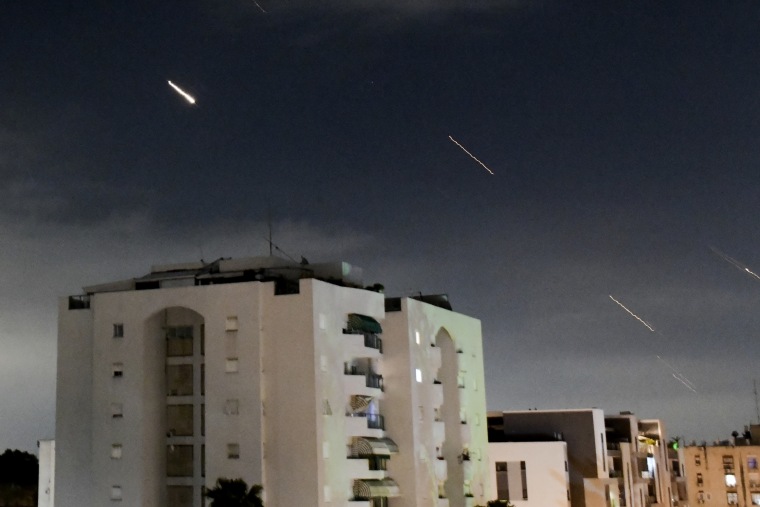U.S. officials expect Israeli response to Iran strikes will be limited
U.S. officials expect a possible Israeli response to Iran’s attack over the weekend to be limited in scope and most likely involve strikes against Iranian military forces and Iranian-backed proxies outside Iran, four U.S. officials told NBC News.
The U.S. assessment is based on conversations between U.S. and Israeli officials that happened before Iran fired more than 300 drones and missiles at Israel on Saturday night.
As Israel was preparing for a possible Iranian attack last week, Israeli officials briefed U.S. officials about possible response options, the U.S. officials said.
The U.S. officials stressed that they have not been briefed on Israel’s final decision about how it will respond and that the options could have changed since the weekend attack. They also said that it is not clear when an Israeli response will happen but that it could happen at any time.
President Joe Biden and other leaders have called for restraint after Israel vowed it would respond to Iran’s attack Saturday, which was in retaliation for an Israeli strike April 1 on an Iranian consular building in Syria, which killed two of Tehran’s top generals.
The scenarios briefed about last week regarding possible retaliatory action for the consular strike ranged from a modest attack by Iran to a widespread attack that resulted in Israeli casualties and the destruction of Israeli facilities, the officials said.
The potential Israeli responses ranged from no military action to strikes inside Iran.
Because the Iranian attack did not result in Israeli deaths or widespread destruction, the U.S. officials said, Israel could respond with one of its less aggressive options — strikes outside Iran.
The options could include striking inside Syria, three U.S. officials said. The officials do not expect the response to target senior Iranian officials but to instead strike shipments or storage facilities with advanced missile parts, weapons or components that are sent from Iran to Hezbollah.
The U.S. does not intend to take part in the military response, the officials added. They do expect Israel to share information about the actions with Washington in advance, specifically if it could have negative repercussions for Americans in the region.
An Israeli official said Monday after a meeting of Israel’s war Cabinet that Israel’s response to the Iranian attack may be “imminent,” noting that decision-makers believed it was important for any response to follow close to the attack. The Israeli official said several diplomatic and military options were examined during the meeting.

The U.S. and other allies came to Israel’s aid during the strikes, helping it intercept the vast majority of drones and missiles fired at the country. But in a call Saturday, President Joe Biden told Israeli Prime Minister Benjamin Netanyahu that the U.S. would not participate in offensive operations against Iran, a senior administration official has said.
A chorus of chorus and diplomats has condemned the weekend strikes while also cautioning against further escalation in the region.
“I urge all parties to exercise maximum restraint to avoid any action that could lead to major military confrontations on multiple fronts in the Middle East,” United Nations Secretary-General António Guterres said Sunday at a meeting of the Security Council.
Gilad Erdan, Israel’s representative to the U.N., said at the meeting that Israel “reserves the legal right to retaliate” and that the world “cannot settle for inaction.”
Iran has said in a statement from its Foreign Ministry that the strikes were carried out “in exercise of its inherent right of self-defense.” The statement said Iran “would not hesitate to take further necessary defensive measures” to protect its legitimate interests against any act of military aggression or unlawful use of force.”
Read More: U.S. officials expect Israeli response to Iran strikes will be limited

